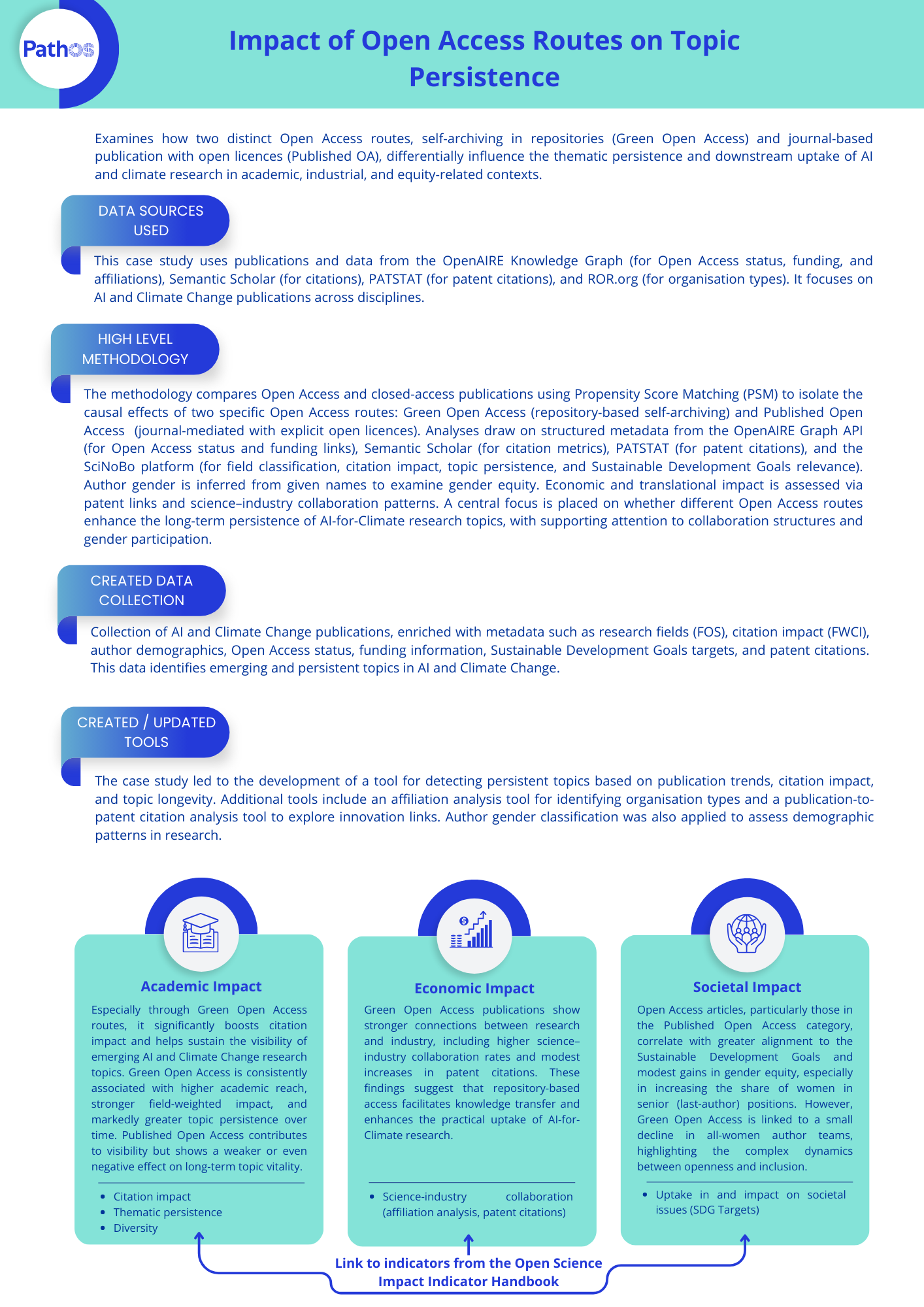Impact of Open Access Routes on Topic Persistence
About This Case Study
This case study investigates how Open Science (OS), particularly Open Access (OA), contributes to the emergence and persistence of new research topics, focusing on Artificial Intelligence (AI) and climate change technologies. By promoting transparency, inclusivity, and interdisciplinarity, OS enables the exploration of research questions that align more closely with societal needs, addressing challenges like gender biases in AI and accelerating the development of innovative climate solutions. Using a quantitative and comparative approach, this case study will analyze the impact of OA on research visibility, collaboration, and citation patterns, comparing OA vs. non-OA publications, H2020 vs. non-H2020 funded projects, and various OA types (Green, Gold, Hybrid, Bronze, Diamond).
Emphasis will be placed on emerging topics in AI and climate change, examining how OA supports diverse perspectives in addressing potential biases in AI tools, and innovative climate change technologies, exploring how OA drives progress in tackling global environmental challenges. By isolating the effects of OA, the study aims to uncover its role in enabling collaborative and interdisciplinary research that reflects the evolving landscape of scientific inquiry.
This case study builds on findings from MOAP Study, Reproducibility – RTD/2020/SC/10, and Monitoring and evaluation of the Framework Programme for research and innovation along Key Impact Pathways – RTD/2019/SC/016. Supporting studies such as the Global Gender Gap Report, the AI Index Report from Stanford’s Human-Centered AI Institute, the Women in Digital Scoreboard, and the Alan Turing Institute’s report on gender gaps in AI provide critical benchmarks for evaluating OS’s impact on inclusivity and innovation.
By linking OA to the emergence of new research topics, this case study provides actionable insights for policymakers, research funders, and publishers, ensuring that research practices and outputs are aligned with global priorities like the United Nations Sustainable Development Goals (SDG 5 for Gender Equality and SDG 13 for Climate Action). The findings aim to showcase how OS practices can drive impactful, inclusive, and societally relevant research.
Explore PathOS Case Studies: Methods, Data, and Tools
Are you curious to learn more about how PathOS carried out its case studies? Would you like to replicate our methods, reuse our indicators, or explore the workflows behind our analyses?
You can dive deeper into our technical approach, data pipelines, and indicator implementation in the resources below:
-
Data & Tools for the Long-term Evaluation of Open Science - a reference guide supporting reusability of PathOS datasets, workflows, and computational tools for OS impact evaluation.
-
Open Science Impact Indicators for Case Studies – Final Report - insights from six case studies showing how Open Science impacts vary across disciplines, infrastructures, and national contexts.
And make sure to check out our PathOS Toolkit at GitHub!

